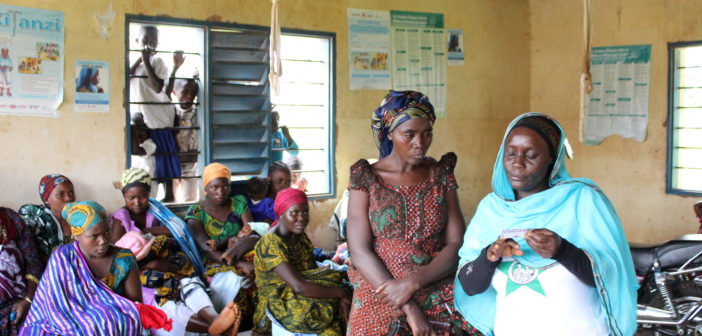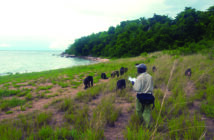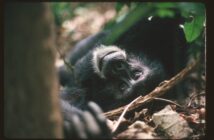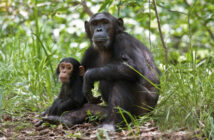In today’s world, we face complex challenges. Challenges that require dynamic solutions that can bring together different sectors and approaches. As we face the COVID-19 pandemic, every level our societal systems and structures are being tested. It has never been more apparent that we need to embrace a more holistic view of health – one that includes the environment. Recently, Dr. Jane Goodall shared her thoughts about the interconnection of all life on Earth, and the importance of our relationship to the natural world and each other. How we treat our environment has tremendous impacts on our health; you cannot have a healthy human population without a health environment, and vice versa. The Jane Goodall Institute, Pathfinder International, RTI International, and Impact by Design deeply understand this, which is why our collaboration on the USAID funded Landscape Conservation in Western Tanzania (LCWT) project does just that.
Ashley Sullivan: How does LCWT take a proactive, holistic approach?
Cheryl Margoluis: The Jane Goodall Institute has partnered with Pathfinder International, and several other organizational and governmental entities through LCWT to be able to more effectively address a complex set of problems and produce a holistic set of activities that can improve the well-being of local communities and protect ecosystems. In western Tanzania, remote communities are often marginalized and have limited access to social services, particularly health care services. They are also highly dependent on their natural resources for their sustenance and livelihoods. For nearly 30 years, the Jane Goodall Institute has been using Jane’s innovative ‘Tacare’ community-centered approach which focuses on needs of the communities in order to address the needs of the environment. It is an integrated approach that empowers local communities by listening to their needs. It combines sexual and reproductive health, maternal and child health, education, public awareness, natural resource management, land-use planning, and conservation.
By listening to local communities and understanding their relationship to the natural world and their own family planning, health and education, we can best support activities for sustainable lifestyles and improved well-being. JGI asks questions like, ‘Do you have adequate food security? Sustainable livelihoods? Sustainable natural resource systems?’ Pathfinder International focuses specifically on health, asking questions like, ‘Do you have healthy pregnancies and the ability to space births?’ Once these questions are answered, we can more effectively address the root factors that affect health, and the health of their environment.
Ashley Sullivan: You have shared that you cannot solve problems in just one sector without creating additional problems in other sectors. Could you explain what that means to you and for this work?
Cheryl Margoluis:
Pathfinder International, the Jane Goodall Institute and our LCWT partners recognize the complexity of the challenges that these communities face and the need to address both human and environmental needs. We have created a cross sectoral partnership that allow us to reach marginalized communities, improve natural resource management and human well-being,while simultaneously protecting habitat for key species – in this case chimpanzees.
We want to see other organizations working across sectors like this as it allows us all to achieve greater impact.
Ashley Sullivan: As the world comes to terms with both the origins of the COVID-19 pandemic being tied to wildlife trafficking/markets and the dependency on these kinds of unsustainable livelihoods, how do you think programs like LCWT work proactively to ensure issues like this don’t happen in the future?
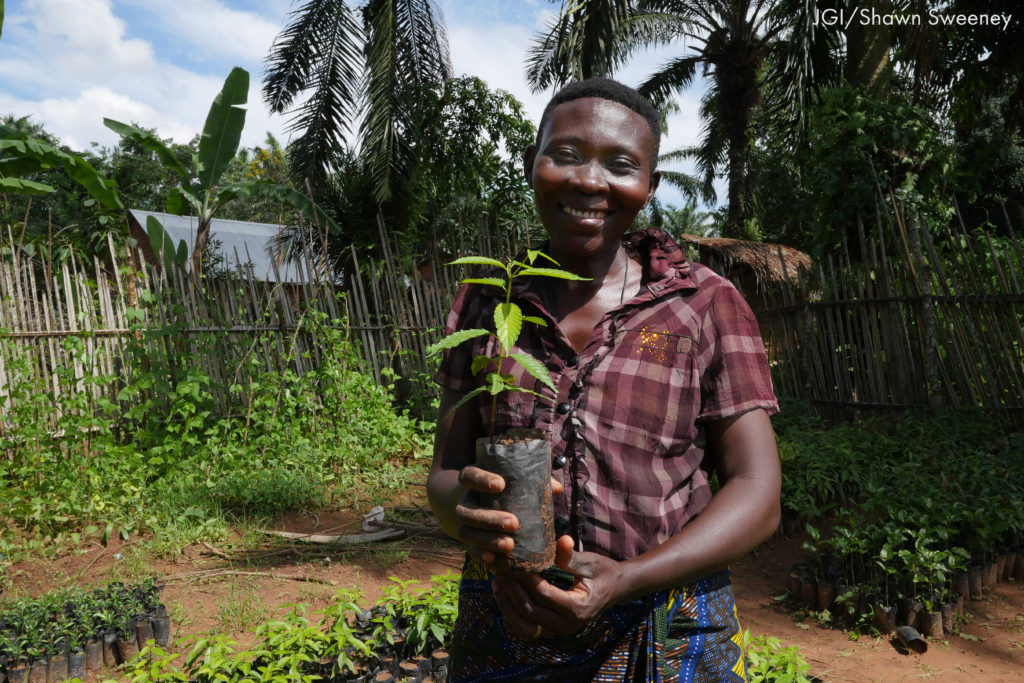
Cheryl Margoluis: I think programs like our integrated work on LCWT are so important because they help people understand the links between their health and their environment. A healthy environment is necessary to support a healthy community – and a healthy community conserves resources and uses them more sustainably. COVID-19 reminds us that we need to live more sustainably in balance with the natural world, not only for the sake of the environment, but for our own health as well.
Ashley Sullivan: What makes you hopeful about this specific work and what’s possible through cross-sectoral approaches?
Cheryl Margoluis: I am hopeful about our work because I see changes – big and small – that people are making in their lives that improve their health and improve the management of their natural resources. They are spacing their children, creating healthier moms and babies. They are improving hygiene and sanitation in their households by making hand washing stations and creating dish drying racks. They are managing their resources more sustainably by building their technical knowledge and strengthening their local institutions. But they are also making community by-laws, creating district plans, and creating national policies that recognize the need for this integrated programming. The actions are there, and this helps forge communities that are resilient and in control of their own resources, lives and futures.
Learn more about LCWT here.
Jane and the Jane Goodall Institute need your help.
As we face the spread of the COVID-19 pandemic, JGI staff are working tirelessly to ensure the health and well-being of the chimpanzees in our care, as well as wild chimpanzees (as they are also potentially susceptible to the disease), to continue our support for human communities with which we work, and the young people we’ve empowered through Roots & Shoots. This is an unprecedented spring and our ability to act to save lives depends upon the generosity and support of the whole JGI family.

The Jane Goodall Institute is a global community conservation organization that advances the vision and work of Dr. Jane Goodall. By protecting chimpanzees and inspiring people to conserve the natural world we all share, we improve the lives of people, animals and the environment. Everything is connected—everyone can make a difference.


